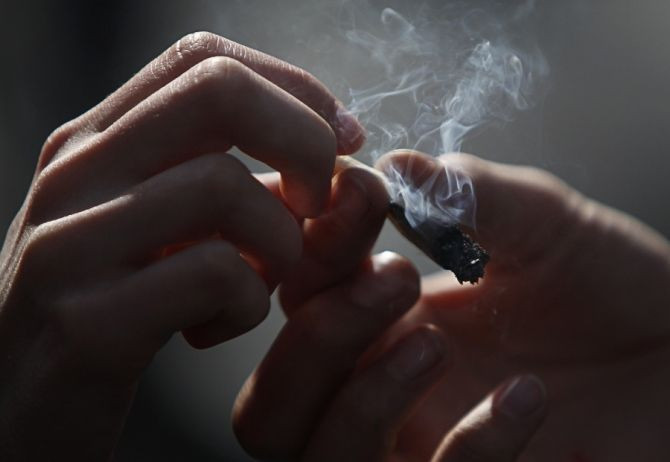Marijuana Withdrawal Is Real: Users Can Suffer Same Acute Withdrawal Symptoms as Tobacco Smokers

When people try to quit smoking marijuana, they can experience withdrawal symptoms that can disrupt their daily lives, according to a new study.
Australian scientists found that when habitual marijuana users were asked to quit the habit for two weeks, they suffered irritability, sleeping difficulties, mood swings, loss of appetite and other symptoms that affected their ability to work and their personal relationships.
Researchers said that the most extreme impairments, which included depression, were seen among those who used marijuana most frequently. Researchers found that the effects of the observed withdrawal symptoms were similar to nicotine withdrawal.
Lead researcher David Allsop, of the National Cannabis Prevention and Information Center at the University of New South Wales, and his team also found that people who had greater impairment from marijuana withdrawal used more of it during the month after their attempt to stop smoking.
"Cannabis withdrawal is clinically significant because it is associated with functional impairment to normal daily activities, as well as relapse to cannabis use," Allsop and his team wrote in the study published in the open access journal PLoS ONE.
The idea that marijuana can be addictive has been widely debated and while it is accepted that the drug can cause addiction and withdrawal, experts were not certain whether withdrawal from the drug was severe enough to interfere with daily life.
Researchers say that the new findings show that doctors should be aware of cannabis withdrawal, which is not included as a disorder in the Diagnostic and Statistical Manual of Mental Disorders (DSM), and educate patients about what symptoms they might experience when they try to quit.
The study included 49 male and female cannabis users who used the drug more than five days a week. Researchers had asked participants to abstain from marijuana use for two weeks and urine samples were collected to identify participants who relapsed.
The results showed that ten participants who relapsed were more likely to experience greater impairment in their daily lives from withdrawal symptoms compared to those who didn't relapse. Researchers also found that people who experienced certain symptoms like insomnia, physical tension and mood swings had a greater chance of relapsing compared to those who experienced hot flashes, fatigue and night sweats.
Researchers believe that the latest findings suggest that cannabis withdrawal should be added as a mental disorder to the DSM.
"Cannabis is the most prevalent illicit drug all around the world - including in America - and current treatment options have very limited success rates for continuous abstinence," Allsop said, according to Fox News. "Why wouldn't you include it?"
Researchers noted that because the number of participants who relapsed was small, additional research is needed to determine which withdrawal symptoms may predict relapse.



























